Share
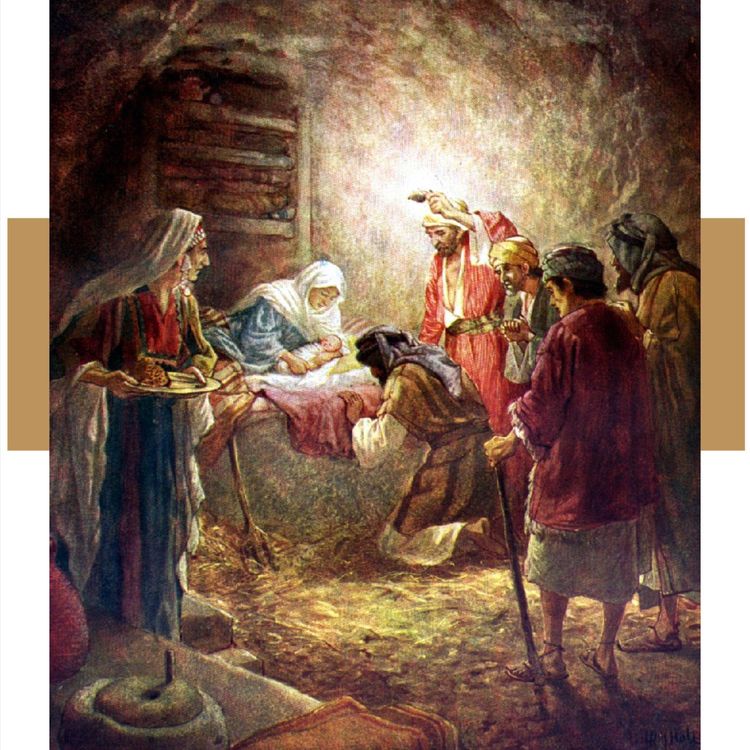
The Radio Immaculata Show
Where was Jesus Born?
Where was Jesus Born? Tradition has always made reference to a cave in Bethlehem. More recently some scholars reflecting almost exclusively on the Greek word "kataluma", translated normally with "inn" (Lk 2:7), have come to a new interpretation. This word among other meanings can also point to a "guest room". Therefore, they conclude, since the guest room was already busy, Mary and Joseph were put up instead in the living room, together with all family and the animals. It would have been inconceivable that Joseph had not found a relative in that city to host him and his pregnant wife. The final conclusion is that Jesus' birth was all natural, nothing to be preserved from indiscreet eyes. But if we read that word in its context, we understand that there was a "sign" given to the Shepherds to be carefully investigated in order to recognise the Saviour, Christ the Lord. The Shepherds arrived and found Mary, Joseph and the Baby in a manger (Lk 2:16). To understand the mystery hidden in that manger, they had to go through Our Lady and through her virginity. The cave in its austerity and seclusion secured the virginal birth of Christ and made the Shepherds feel at home, so as to be able to become evangelists of that Good News! There was a mystery to keep.
More episodes
View all episodes
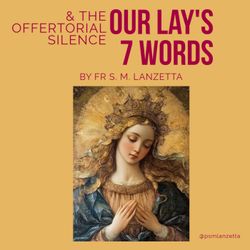
Our Lady's 7 Words & the Offertorial Silence
19:35|Our Lady pronounced only 7 words recorded by the Gospels: from the Annunciation through the Visitation, the finding of Jesus in the temple, up until Cana. As Jesus manifested His glory at that significant wedding, Our Lady ceased to speak publicly. Why? Moreover, in two central moments of Jesus' life, the Presentation in the temple and Calvary - two offertorial moments - no word by the Virgin Mary is recorded. Mary's silence is obedience to God and praise of His majesty. It is oblative. Her silence is the very pattern of Christian life and of liturgical offering at Mass.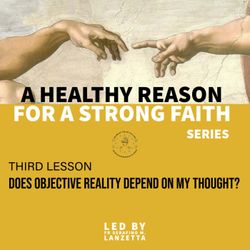
3. Does objective reality depend on my thought?
02:05:26||Ep. 3In this third episode we deal with the problem of perception of reality. Realism vs. Idealism or Anti-realism. The question that arises is this: Are we sure that there are things beyond our own comprehension and that there is an external world wider than our sensation and thought? This seems an ongoing doubt. How to go about it? We deal with the thought of George Berkeley (1685-1753) still relevant and influential today.PS The first hour is the lecture given by Fr Serafino. The second one, the Q/A session with very good interactions by the audience.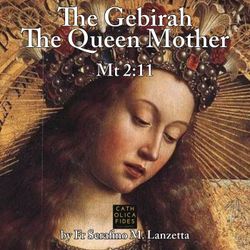
Our Lady as the Gebirah - the Queen Mother in Mt 2:11
45:49|Why is St Joseph not mentioned in the account of the Magi upon their arrival at Bethlehem (cf. Mt 2:1-11)? Joseph of Nazareth plays a prominent role in Matthew's Gospel, though. His presence is well outlined in what just precedes the moment of the adoration of the Magi (the Angel telling Joseph in a dream about the divine Incarnation) and what follows it (Joseph alerted by the angel to flee with Jesus and Mary into Egypt). So he is definitively not forgotten by the evangelist. However, the message delivered by the Gospel of the Magi is that the Baby is recognisable as the true Davidic King by being "with Mary his Mother." Our Lady is the Gebirah, the "Great Lady" or the "Queen Mother", who, as in the Davidic realm, is beside the King pointing to his royal dignity. As already with Bathsheba in the book of 1Kgs 2:19, Our Lady sits with the Son, or, even better, is the very Throne of the Son, the Seat of Wisdom. In this very moment, the great icon of Our Lady with Child Jesus sitting on her lap and offered to our adoration and contemplation takes shape and will be later painted.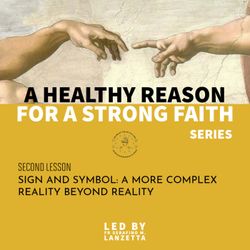
2. Sign & Symbol: A More Complex Reality Beyond Reality
01:29:48||Ep. 2In this second episode of "Philosophy for All," we analyse what a sign is and its difference from a symbol. Both sign and symbol point us to a reality beyond themselves. The sign and the symbol, without which we cannot live, are not the reality they point us to. Paul Ricœur (1913–2005), a French Philosopher, tells us that idolatry occurs when a symbol is mistaken for the reality. Idolatry, we can add, can also occur when the reality is mistaken for the symbol and everything becomes merely symbolic.Every first Sunday of the month, at 2pm, in St Jospeh's Hall - Tangier Road - Portsmouth (UK), we meet in person for a lecture on Philosophy open to and made easy for all.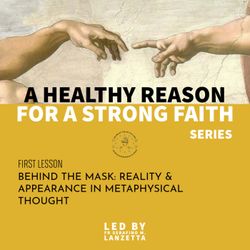
1. Behind the Mask: Reality & Appearance in Metaphysical Thought
01:12:04||Ep. 1With this first episode, we start a series on "Philosophy for All," investigating what Metaphysics is. In this first lesson we focus on the perception of reality with the help of Plato's Allegory of the Cave. How do we know what is real? How do we know that the reality we perceive is the final reality and not a mere appearance? What is real and what is apparent? Man is made for what is real and lasting: the ultimate reality.Every first Sunday of the month, at 2pm, in St Jospeh's Hall - Tangier Road - Portsmouth (UK), we meet in person for a lecture on Philosophy open to and made easy for all.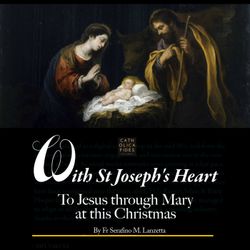
With St Joseph's Heart
01:00:25|St Joseph's heart is the mystery to contemplate at this Holy Christmas to welcome with it God's greatest gifts: Our Lady and Jesus, our Saviour. Joseph was espoused to Mary in a very unique and holy way - a virginal one. Through her, he embraced Our Lord and became His virginal father. St Joseph's heart was the very place where these two mysteries were laid, prefiguring also the cave of Bethlehem.
Is Christian Salvation Individual or Social? Discussing Catholicism's Fundamental Stand
16:11|The 1930s saw a frequent objection made to Christianity: since salvation is personal, Christianity would easily pave the way for individualism, where every Christian looks for his own happiness, forgetting all others. Henri de Lubac wrote "Catholicism" (1937) to reply to this objection by making the point of "social Catholicism." However, few years later, this concept, though well grounded in the Church Fathers, became ideologically ridden, so as to affirm that Faith and its celebration were merely social. What about today? Whilst it seems very odd to preach about saving one's soul, a 'communal salvation' has led to prioritise social issues, such as building up a more human society and ecology (detached from Christ). A strong Marxist component is now facing the Church from within. What is then salvation? The unity and the trinity of the Triune God should be reflected in this discorse. Saving souls is still the supreme law of the Church.
The Humility to see God in this little Child, and in Him your very self
15:29|In this homily given on Christmas Day, Fr Serafino reflects on the mystery of the Word made flesh. The very difference between any philosophy, any natural religion, and Christianity is that the Word spoke and is made flesh. Incarnation is a gift not a right, as grace is a gift and never a right. Yet, in today's Church, as in the society, grace seems to be a right. Even blessings have become a human right. Christmas celebrated with faith and love is the way to regain the concept of 'gratuitous love,' by which we are mad creatures and Christians.
The Co-redemptive Mission of St Francis
45:24|St Francis of Assisi heard the word of the Crucifix: "Go Francis and repair my Church." Only at the third church he arrived with the intention of refurbishing it, St Mary of the Angels, the Poverello understood the correct meaning of that mission: he had to build up the Body of Christ, purchased by Our Lord with his Blood. At the Portiuncula, St Francis was identified with the Mother of God to "give birth unto the spirit of Gospel truth" (St. Bonaventure). That was the beginning, a sort of Franciscan Annunciation. St. Francis, then, identified with Our Lady Co-redemptrix, gave life, as another Christ Crucified on La Verna, to the Church by generating Christ into many souls as well as into society and culture. The point is Co-redemption.